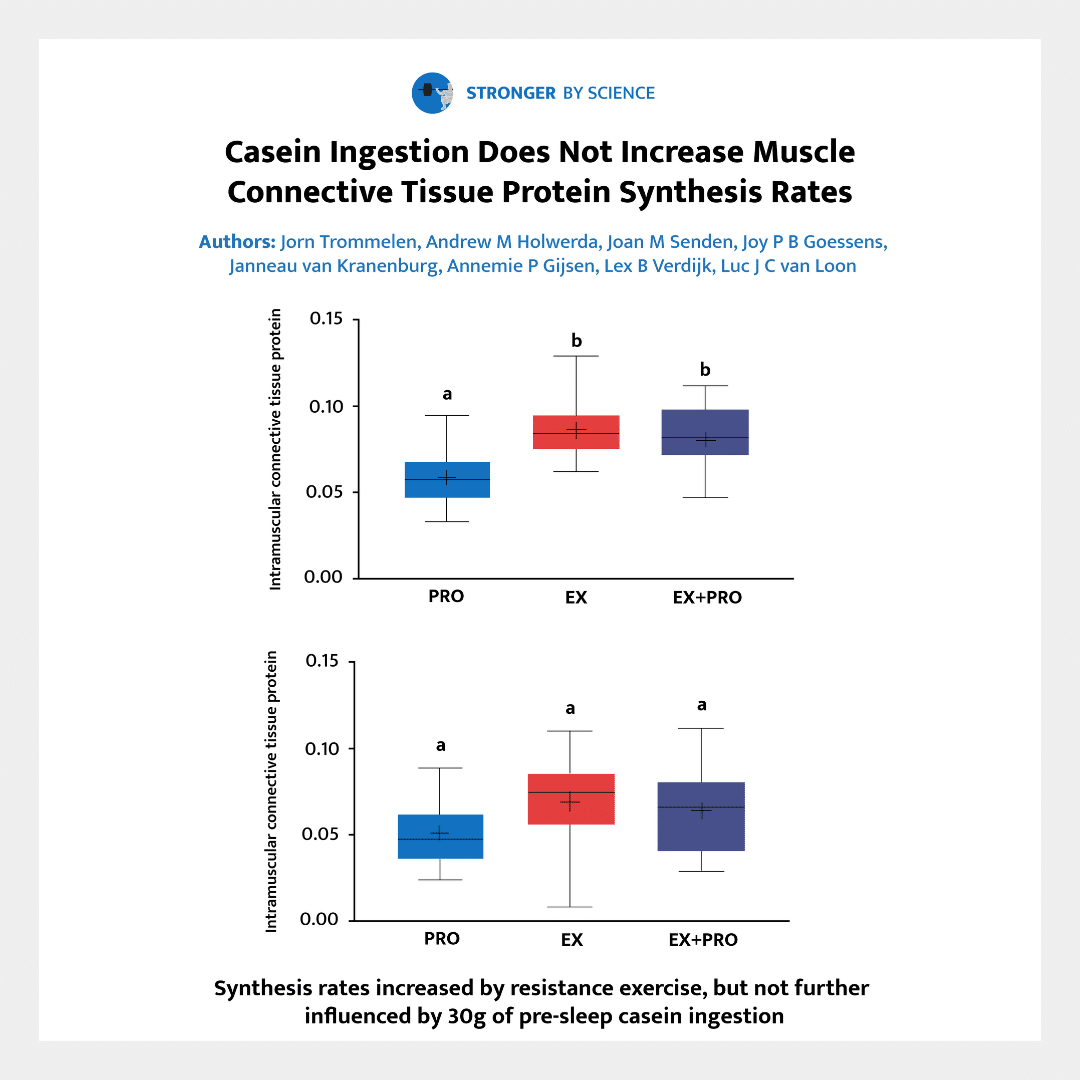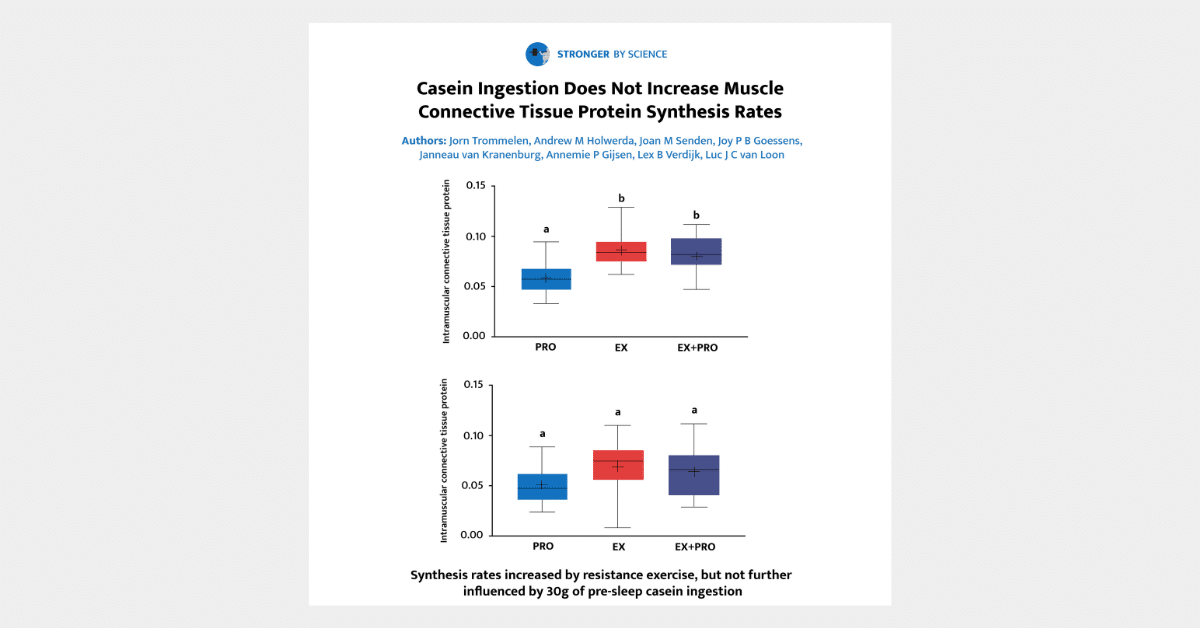Intramuscular connective tissue is important, and some research has suggested that whey protein supplementation can enhance its synthesis in a time-delayed manner (>3 hours after a bout of resistance exercise). A recent study evaluated the impact of casein supplementation on intramuscular connective tissue protein synthesis rates during overnight recovery from a resistance training session.
36 recreationally active men were assigned to either an exercise group (EX), a protein group (PRO), or an exercise + protein group (EX + PRO). About 4 hours before bedtime, the EX and EX + PRO groups participated in a 60 minute exercise session that consisted of 6 sets of 10 reps of the horizontal leg press and leg extension machine. The PRO group rested in a sitting position during that time. On the day of testing, standardized diets were provided, which yielded 1.2 g/kg of protein, plus an additional 20g of protein after the workout (or sitting period), which was ingested about 3 hours before bed. At bedtime, an additional 30g of casein was administered to the PRO and EX + PRO groups.

Intramuscular connective tissue protein synthesis rates were higher in the exercise groups (EX, EX + PRO) than the non-exercise group (PRO), but there was no significant difference between the exercise groups. This suggests that additional casein supplementation prior to sleep did not further increase intramuscular connective tissue protein synthesis rates after a single bout of exercise. The researchers speculated that results could potentially be different if a larger casein dose is used (40g+), or if a protein source with higher relative glycine and proline content is used instead of casein. It’s also possible that the combination of the standardized diet and post-exercise protein dose provided to all groups was sufficient to maximally facilitate synthesis rates.
The bottom line: In summary, 30g casein did not increase overnight intramuscular connective tissue protein synthesis following resistance exercise, but a high-protein diet is still advisable to maximally support muscular adaptations to training.




